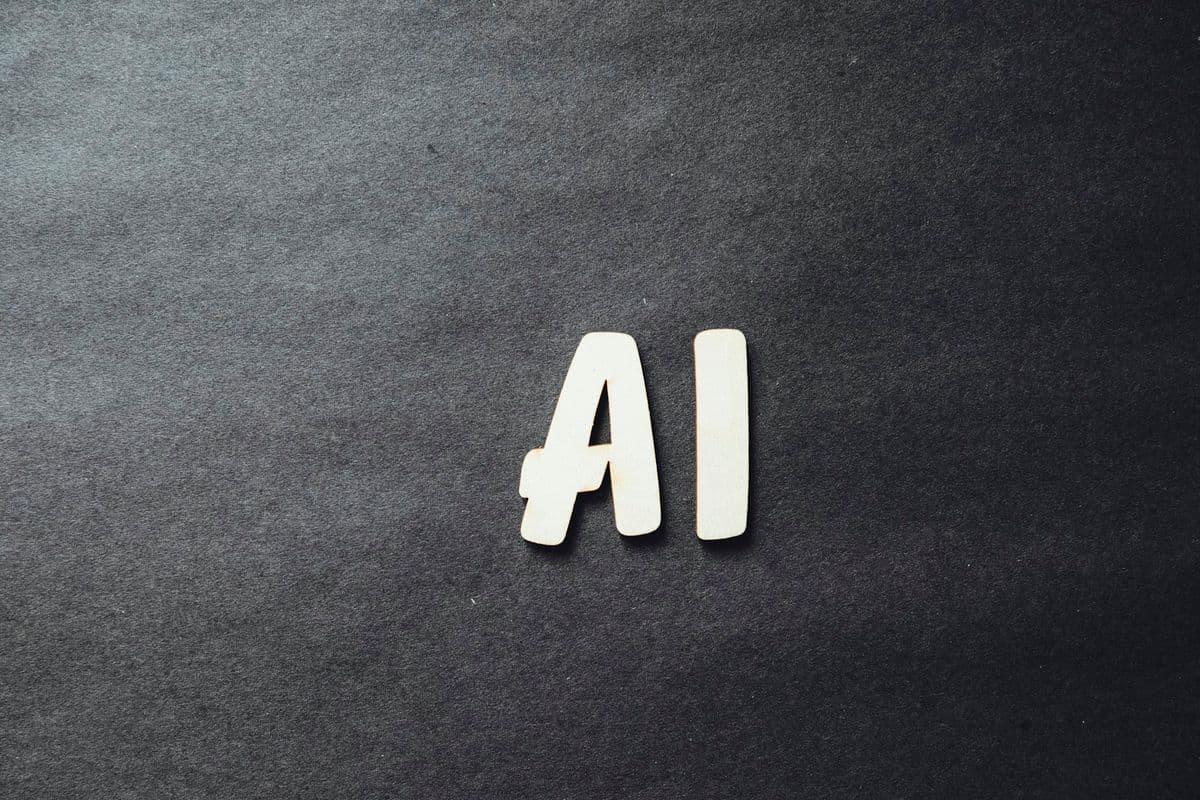AI agents have moved beyond buzzwords floating around tech circles and now serve as essential tools behind some of the most successful enterprises today. These digital agents function as tools that follow instructions, but they also think, adapt, and make decisions.
They're like having an extra set of hands, but smarter, able to handle complexity with precision and scale operations in ways that were once unimaginable.
As businesses become more complicated by the day; more data, more processes, more moving parts to manage; traditional automation can only take you so far, handling routine tasks on autopilot. However, AI agents step in where automation stops, bringing intelligence and autonomy to the table. They analyze data in real time, predict outcomes, and even learn from new information.
Saving time is important; staying ahead matters even more.
And the adoption is happening fast. From customer service chatbots that feel almost human to supply-chain optimizers that spot inefficiencies before they cost you, companies across industries are jumping on board.
Why? Because those who aren't leveraging AI agents risk falling behind in a world that's moving faster than ever.
Core Features and Types of AI Agents
AI agents are built on a few powerful principles that give them the qualities of intelligent collaborators rather than just machines. First up, autonomy, they operate independently, handling tasks without constant human input. Then there's goal orientation, meaning they're laser-focused on achieving specific objectives. Add to this their flexibility, which helps them respond to changing conditions, and reasoning, the ability to make decisions based on data. And let's not forget learning, the more they interact and observe, the better they get.
It's like having a team member who gets smarter every day.
When it comes to types of AI agents, they're surprisingly diverse, each created for a specific kind of problem-solving:
- Simple Reflex Agents: Think of these as rule-followers. They react to inputs in real time without overthinking. Perfect for predictable environments, like a thermostat keeping your office at the right temperature.
- Model-Based Reflex Agents: These take it up a notch by building a mental map of the world. They're ideal for dynamic settings. Picture a robot vacuum navigating your home without getting stuck behind furniture.
- Goal-Based Agents: They focus entirely on outcomes. For example, a logistics app planning the fastest delivery routes for your products.
- Utility-Based Agents: These are decision pros, weighing options to maximize the best result. Think of investment tools balancing risk and reward to recommend strategies.
- Learning Agents: They evolve, adapting to your preferences over time, it's an approach that feels increasingly personalized.
Each type has its strengths, and choosing the right one can transform how businesses operate. Explore real-world AI agent use cases with our comprehensive guide.
The exciting part is that AI agents are ready to meet today's challenges and are already making an impact.
How AI Agents Work in Organizations
AI agents are like the brainpower behind the scenes, quietly changing how organizations operate. These systems follow orders, plan, adapt, and execute tasks as though they're solving puzzles in real time. By combining reasoning, feedback loops, and adaptive workflows, these agents handle multi-step processes that would typically require human oversight. They're smart and resourceful.
Here's how it works. AI agents tap into APIs, large language models (LLMs), and enterprise systems to gather and process data. Think of them as expert data detectives, piecing together information to make decisions and take action.
Whether it's scheduling meetings, analyzing customer data, or optimizing supply chains, they're constantly integrating insights to keep workflows running smoothly.
And they don't stop there. These agents can work solo or in multi-agent systems, where teamwork becomes the centerpiece. Imagine a system of collaborative agents managing a product launch, one handles customer inquiries, another monitors inventory, while a third adjusts marketing strategies based on real-time trends.
It's seamless, efficient, and unbelievably scalable.
What sets these agents apart is their ability to adapt their responses based on clear rules and patterns. Through sophisticated algorithms and predefined parameters, they optimize their performance within each session, responding dynamically to changing conditions.
For startups seeking rapid MVP development, this kind of intelligence offers a significant competitive advantage.
AI Agent Use Cases Across Industries
AI agents have carved out a significant role in nearly every industry, fundamentally transforming how businesses operate. The beauty of these intelligent systems lies in their versatility and their ability to adapt and learn, making them indispensable for tackling complex challenges.
In human resources, AI agents streamline recruitment by automating resume screening, scheduling interviews, and conducting initial assessments. They also enhance onboarding by guiding new hires through training and paperwork, ensuring a smooth start. For ongoing support, AI chatbots handle employee inquiries about policies and benefits, providing instant assistance.
In finance, they’re the watchdogs and strategists. AI monitors transactions in real time, flagging fraudulent activity before it becomes a problem. For investment firms, they execute algorithmic trades, optimizing strategies based on live market data.
And as virtual advisors, they assist customers with financial planning and account inquiries.
The healthcare sector is seeing a revolution too. AI agents help clinicians by retrieving patient data and drafting notes, saving precious time. They aid in diagnosing diseases by comparing symptoms with historical cases and even simplify appointment scheduling and billing processes.
IT teams benefit from AI agents acting as 24/7 helpdesk assistants. These agents handle routine tasks like password resets and software access requests, providing quick solutions to common technical issues.
In marketing, they analyze customer behavior to deliver personalized campaigns and optimize content strategies. Meanwhile, sales teams use AI to qualify leads and refine forecasts, helping close deals faster.
From customer service to procurement, AI agents drive automation and innovation, making companies better positioned to succeed in a tech-driven era.
Best Practices for Adopting AI Agents
Adopting AI agents means creating a system that evolves alongside your business, not simply plugging in tech.
Adopting AI agents can feel like entering uncharted waters, but with the right approach, they can become a cornerstone of innovation and efficiency. Here's how to make the most of them:
- Identify High-Impact Opportunities
Start by looking for areas where AI can make meaningful change. Repetitive tasks, data-heavy workflows, or processes bogged down by inefficiencies are prime targets. Whether it's streamlining customer support or optimizing logistics, focus on use cases where AI can deliver measurable value. Explore the Practical Guide to AI Automation in Business for strategies to automate routine tasks and boost operational efficiency. - Set Clear Success Metrics
Define what success looks like before you begin. Whether it's reducing response times, increasing user engagement, or cutting costs, align AI objectives with your business goals. Establish KPIs upfront to make tracking progress and refining strategies straightforward. - Prioritize Ethical AI
Building trust matters. Ensure your AI agents operate transparently and ethically, following guidelines that respect both users and regulations.Creating systems people feel confident interacting with helps build stronger relationships and trust. - Prepare for Integration
AI is only as good as the data it works with. Clean, accurate, and accessible data is non-negotiable. Plus, integrating AI with your existing systems needs to be seamless to avoid headaches down the line. Think scalability from the start. - Promote Human-Agent Collaboration
AI agents shine brightest when enhancing human efforts. Design them to work with your team, not against it.Providing training on how to collaborate effectively with AI can turn employees into ambassadors for the technology. - Commit to Ongoing Updates
AI requires regular updates and performance evaluations to stay sharp. Continuous refinement keeps them relevant, efficient, and aligned with your evolving goals.
Adopting AI agents means creating a system that evolves alongside your business, not simply plugging in tech,
With the right practices, AI can be a powerful partner in driving growth and innovation.
AI Agents and Workforce Transformation
AI agents are changing the way we think about work, and honestly, it's about time.
By automating repetitive, time-consuming tasks, they free up employees to focus on the activities that truly move the needle, creativity, strategic planning, and innovation.
Teams become more productive and gain the power to tackle high-impact projects.
Shifting workloads is only part of the story. AI agents bring precision and speed to the table, reducing errors and making processes scalable. Whether it's managing customer queries or optimizing supply chains, they handle complexity with ease, leaving businesses leaner and more efficient.
The savings, both in time and cost, can't be overstated.
More importantly, AI agents are breaking down silos in organizations by connecting data and workflows across departments. It's like giving everyone the same playbook, ensuring collaboration flows effortlessly. Major retailers are already implementing AI systems that streamline operations internally while bridging the gap between customers, employees, and suppliers.
That's efficiency on a whole new level.
Of course, this shift comes with a need for new skills. As AI takes over routine tasks, roles are evolving. Emotional intelligence, ethical decision-making, and flexibility are becoming the must-have tools of the modern workforce.
And businesses that invest in reskilling programs help their teams succeed and grow alongside AI agents.
Our step-by-step guide to making an AI app provides a practical roadmap for building AI agents, from defining objectives to integrating them into your workflow.
AI agents amplify human potential, helping organizations innovate faster and smarter in an increasingly competitive world. Who wouldn't want to work smarter and faster?
The Future of AI Agent Use Cases
AI agents are reshaping industries, streamlining operations, and driving unprecedented levels of innovation. From autonomous decision-making to continuous learning, these tools are actively changing how businesses adapt and compete in a fast-moving world.
Whether it's managing workflows, enhancing customer experiences, or finding new opportunities, their potential is limitless.
As we explored, their applications span every major sector. HR teams are hiring smarter. Finance is mitigating risks in real time. Healthcare is delivering faster, more accurate care. And marketing is becoming more personalized than ever.
What stands out is that AI agents speed up processes and make them smarter, creating value where it matters most.
Looking ahead, the future of AI agents is even more exciting. Multi-agent ecosystems, real-time processing, and composable systems are set to define the next wave of innovation. These advancements will empower startups and companies alike to scale faster, disrupt markets, and build systems that are as agile as the world demands.
If you're ready to use AI for your next breakthrough idea, let's turn your vision into reality.



